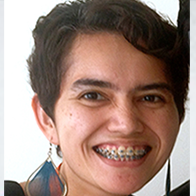As a scientist, I am accustomed to being in a controlled environment where we receive samples from patients or participants of our studies, often times HIV+ and more often than not having a myriad of other infectious diseases.
A number of our patients also face the challenges of drug addiction, which need to be treated psychologically as well as medically. I am used to handling samples of blood, sputum, and other bodily secretions in order to research such infectious diseases, and from my training over the years, I have become detached from the fact that these samples come from people, just like me, people with life stories.
This year, back in the first week of Ramadan, there was a general outcry over the ban of soup kitchens within 2.5km radius of the city centre. While the issue is now somehow resolved, and the soup kitchens are able to serve their clients legally once more, the limelight on the homeless are shone ever so brightly that sheltered, privileged people like me are now more aware of the people who live in the streets.
Most of them are in the streets due to a myriad of issues, and substance addiction is one. The scientist in me felt compelled to finally meet my “samples” in person, to just meet them and see them as human beings.
I ended up volunteering with a soup kitchen recently and spent my Merdeka eve doing the rounds distributing food to the needy. A part of me was happy, seeing Malaysians together helping each other regardless of race or religion, and somehow bridging the gap between the privileged and the under-privileged.
I observed how comfortable the more seasoned volunteers are with the "clients", how they know some of them by name, playing with the children of the streets as though they were a part of some extended family during a Hari Raya gathering. I saw the value in cardboard boxes and plastic bags, highly sought after by the needy to make into bedding or makeshift shelter. I saw gratitude, on both sides of the divide, giver and receiver.
But I also saw hopelessness. The fact that drug possession is a criminal offence ensures most of the people who use drugs (PWUDs) to be unemployed once they are released from detention centres. Almost automatically, most of them would return to their previous habits and back on the streets, having no care in the world and like zombies, come up to the volunteers and accept food packages. These are people who are able, Malaysians.
Forget treating them for HIV or any other infectious disease, these are fellow Malaysians somehow abandoned by the system and unable to even feed themselves. Seeing that on Merdeka eve just overwhelmed me. We are a country 57 years old, and we have yet to move forward in solving this issue.
I have only barely touched the surface of the causes of homelessness. But I am grateful that I ventured out from my lab bench and actually saw the human subjects I work with. While I am not a medical doctor who are able to provide care to them personally, I think the lesson learnt behind my ongoing adventure is the need for more evidence-driven trans-disciplinary research to be conducted in this country, to try and solve issues impacting the society.
In the meantime, I will continue to say a prayer of gratitude when handing out the food packages, for the life lesson I observe almost every Saturday night in the streets of my city. – September 3, 2014.
* This is the personal opinion of the writer or publication and does not necessarily represent the views of The Malaysian Insider.


Comments
Please refrain from nicknames or comments of a racist, sexist, personal, vulgar or derogatory nature, or you may risk being blocked from commenting in our website. We encourage commenters to use their real names as their username. As comments are moderated, they may not appear immediately or even on the same day you posted them. We also reserve the right to delete off-topic comments